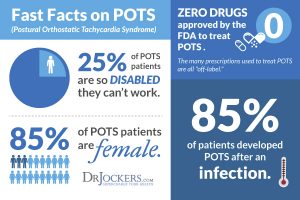Dysautonomia Awareness
Most people are unaware that October is dysautonomia awareness month. Dysautonomia refers to a disorder of autonomic nervous system (ANS) function that generally involves failure of the sympathetic or parasympathetic components of the ANS. There are about 15 different kinds of dysautonomia, all affect the ANS. This has no cure but can be treated for the symptoms.
Symptoms can begin to show in the late teen years and may include:
- an inability to stay upright
- dizziness, vertigo, and fainting
- fast, slow, or irregular heartbeat
- chest pain
- low blood pressure
- problems with the gastrointestinal system
- nausea
- disturbances in the visual field
- weakness
- breathing difficulties
- mood swings
- anxiety
- fatigue and intolerance to exercise
- migraines
- tremors
- disrupted sleep pattern
- frequent urination
- Temperature Regulation Problems
- concentration and memory problems
- poor appetite
- overactive senses, especially when exposed to noise and light

These are common overlaying symptoms but some forms have more than others making this a difficult syndrome to diagnose. Many people suffer with dysautonomia and go undiagnosed due to lack of knowledge about it. I will focus on the most common form which is postural orthostatic tachycardia syndrome (POTS). Symptoms with POTS mainly is a fast heart rate resting and standing up, but can be relieved when lying down again. This is due to a low blood volume in these patients. Some cases have reported that they faint/pass out when they stand up too quickly or stand for a long period of time. People with POTS may get easily tired and walking may be difficult so they use a wheelchair on days in which they feel too bad to walk. This is a personal choice but is necessary if used. It can be treated by increasing water and salt intake. Most patients are recommended to have 5 grams of salt and 2.5 liters of water a day! This is because the water can thin out the blood and have it go to their head easier preventing fainting, the salt helps retain the water. Medications can be heart related as well as anxiety related, one person may be prescribed xanax and another is prescribed beta blockers. The cause of POTS is poorly understood. However, episodes often begin after a pregnancy, major surgery, trauma, or a viral illness and may increase right before a menstrual period. About 200,000 cases are diagnosed per year. Click here for a video to better explain POTS. Click here for a video of someone who suffers explaining it.

